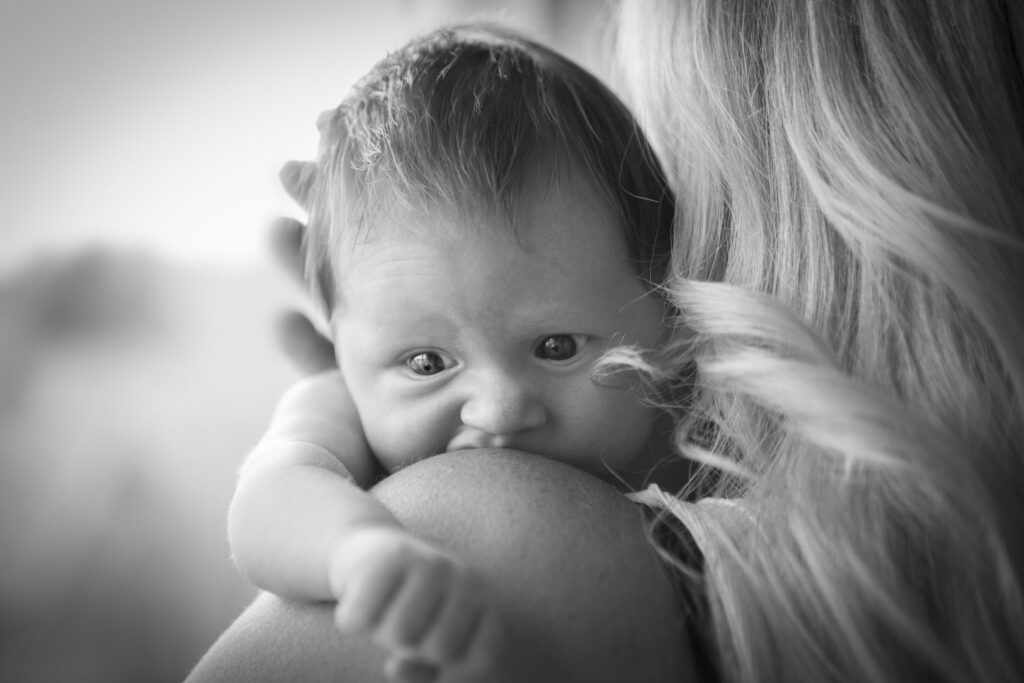Advertisement
We All Need a Hug
The healing power of a simple touch

Jennifer Delic of Stouffville, Ontario, already had two beautiful children—Madison and Avery—when her third daughter, Jade, was born.
“She came a month early, at just over three pounds, and had to spend some time, about two weeks, in the NICU,” she says, referring to the neonatal intensive care unit at the hospital where she gave birth. “When I was discharged and Jade had to stay—that was really hard.”
The following weeks were challenging for Delic, who wished to spend every waking moment with her tiny baby but needed to tend to other duties at home, too.
“I was constantly feeling torn, like I wanted to be in two places at once,” she recalls. “It helped so much that Sherri, the volunteer [with the No Baby Unhugged program], would come and hold her and cuddle her when we couldn’t be there.”
Advertisement
Baby cuddling programs
The program, launched in 2015 in association with the Canadian Association of Paediatric Health Centres (CAPHC), aims to give babies the hugs they need—even when parents can’t be there—by providing funding to hospitals to help them put cuddling programs in place.
Proponents of the program cite hundreds of medical studies that show the importance and healing benefits of skin-to-skin hugs between mom or dad and their newborn. These range from stabilized heart rates to improved sleep and lowered response to pain.
With the No Baby Unhugged program, when parents of newborns in the NICU are unable to provide hugs, volunteers help fill the need by providing parents with confidence and the comfort of knowing their baby is not alone.
Advertisement
Spreading the power of a hug
With three hospitals on board—Cape Breton Regional Hospital in Sydney, Nova Scotia; Southlake Regional Health Centre in Newmarket, Ontario; and Victoria General Hospital on Vancouver Island, BC —and more partnerships in the pipeline, Cameron says the initiative has, thus far, yielded at least 20 trained volunteers cuddling some of the most vulnerable babies across the country.
“There’s always hesitation and considerations when introducing something new,” admits Mickey Daye, manager of maternal child services at Cape Breton Regional Hospital. “We wondered how receptive all parties involved would be, from families to staff to the volunteers themselves. But the program is still running very well, which has helped us overcome a lot of these initial reservations.”
The hospital, he says, has long provided skin-to-skin care in its labour, operating, and recovery rooms, based on “lots of evidence to support skin-to-skin care between infants and parents.” The volunteer cuddling program, an extension of this activity, has seen many successes since its launch.
“You can see the change in the infants that are being hugged and cuddled. Infants who were crying become very settled and relaxed when with the volunteers,” says Daye. “Our long-term goal is to be able to provide this service to all infants in need of extra care and cuddling. This is what every infant deserves.”
Advertisement
Research shows touch is powerful
A white paper prepared for the CAPHC regarding the power of human touch for babies, lists, among numerous scientifically supported benefits, pain relief, weight gain and growth, and improved mental health in both infants and parents.
According to the paper, “Being held and, in particular, caregiver touch, is a natural, no-cost intervention that has been found to have many beneficial effects for babies in hospital … Touch stimulates tactile nerve endings in the skin, which leads to a release of endorphins, oxytocin, and serotonin, often referred to as ‘love hormones,’ which produce pleasant sensations and feelings.”
The power of touch is, in fact, so powerful, science has shown various long-term positive effects of touch received as babies in children who have been followed to the age of 10. And if the rise of professional cuddling services across the country is any indication, adults, too, stand to benefit from a touch, cuddle, snuggle, or hug.
Advertisement
Adults need hugs too
In doing the legwork to launch her business in 2014, Marylen Reid, founder of the Cuddlery in Vancouver, uncovered research that indicated North Americans may be “touch deprived.”
“This is in comparison to other countries, where people are generally more ‘touchy feely’ with each other,” she explains. “The scientific evidence for the many healing powers of touch is strong. A simple, quality cuddle has the power to help people relax and feel connected, lessen pain, and decrease stress and anxiety.”
A typical one-hour session with a professional, certified cuddler could include between five or six different cuddling positions, depending on the client’s needs.
“People of all ages come for support, well-being, and relaxation; and there are different positions and techniques to suit those needs,” Reid says. “The focus is on touch, ensuring it triggers the release of oxytocin, which has been nicknamed the ‘cuddle chemical’ and can promote feelings of trust and connectedness, and reduce cortisol, the stress hormone.”
Research links touch to reducing stress, communicating compassion, nurturing growth and development, reducing pain and depression, and influencing positive behaviour.
“The feedback I receive from my clients is really powerful,” Reid confirms. “One man, a CEO, told me his employees said he was much easier to work with, much more relaxed as a boss. Another client said he finally felt human again.”
In Stouffville, Delic says Jade, now two years old, is doing exceedingly well: running, climbing, and thriving despite the challenges she faced at birth.
“A hug and a cuddle to a baby is so important,” Delic says. “All children—all people—need to feel hugged and loved, to feel affection. It’s great to see how much the program has grown. It’s going to help a lot of other moms like me.”





